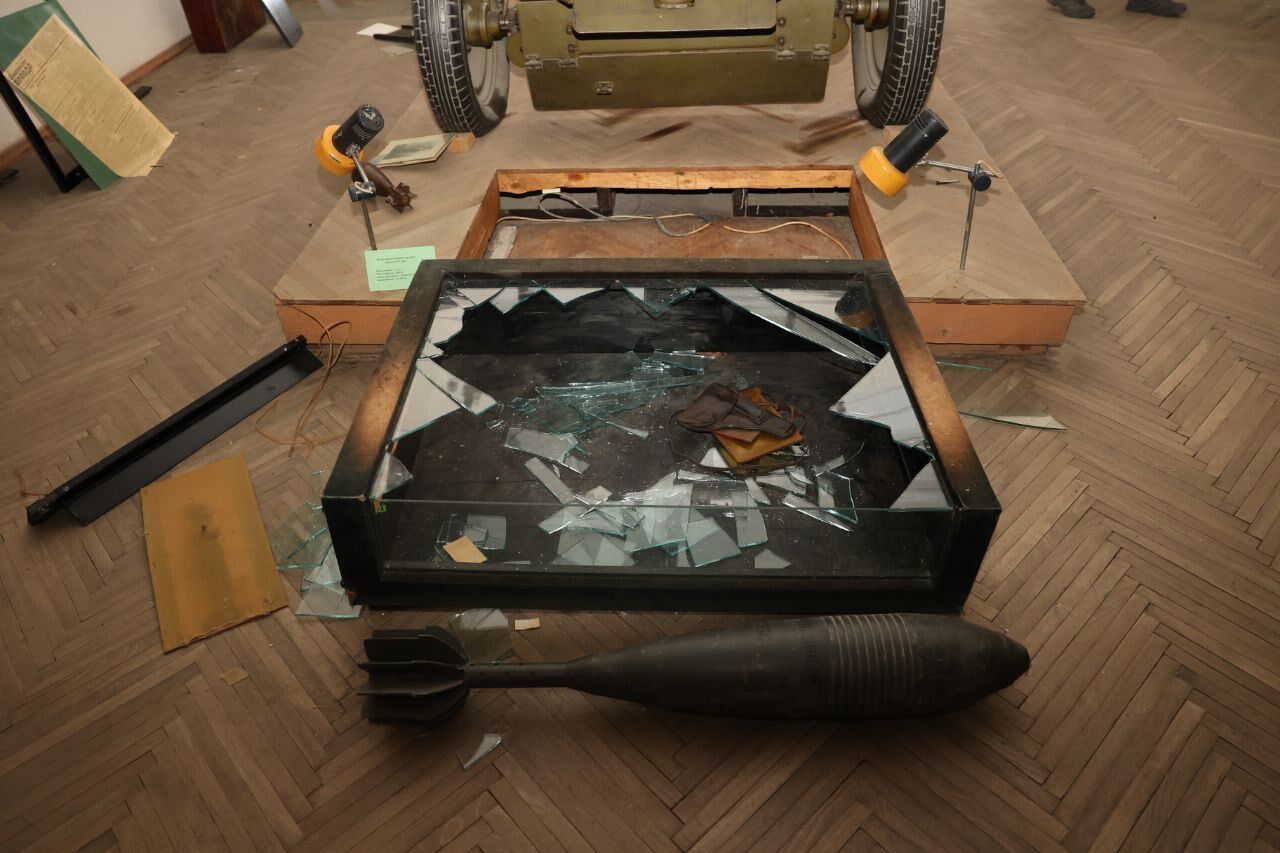Lyuba Yakimchuk, “Decomposition,” trans. Oksana Maksymchuk and Max Rosochynsky. See ➝.
See more on this: Oksana Dudko, “A conceptual limbo of genocide: Russian rhetoric, mass atrocities in Ukraine, and the current definition’s limits,” Canadian Slavonic Papers 64:2-3 (2022): 133-145.
See ➝.
See ➝.
See ➝.
See ➝.
Mike Eckel, “How Long Could Ukraine Hold Out Against A New Russian Invasion?”, RadioFreeEurope RadioLiberty, December 17, 2021. See ➝.
Volodymyr Kulyk, “Discussions with Western Colleagues Over the Rumblings of the War,” Krytyka, no. 1–2 (April 2022).
Svitlana Boym, The Future of Nostalgia (New York: Basic Books, 2002).
One of the biggest fundraisers in Ukraine launched a campaign selling the bracelets with parts of the steel produced by the plant. All the money went to the needs of the Ukrainian military. See ➝.
See ➝.
There are also reports that Russians in Mariupol have demounted the monument to Holodomor (the man-made hunger under Stalin 1932-1933) and renamed one of the main alleys in the city from the Peace Prospect to the Lenin Prospect. By this, Russia is erasing the traces of Ukrainian identity in the city. See ➝.
See ➝.
Matthew Campbell, “Russia’s art raids in Ukraine are the biggest treasure loots since Nazis,” The Sunday Times, February 5, 2023. See ➝.
Yuliya Yurchuk, “Reordering of Meaningful Worlds: Memory of the Organization of Ukrainian Nationalists and the Ukrainian Insurgent Army in Post-Soviet Ukraine,” Doctoral Thesis, (Stockholm University, 2014). See ➝.
Madina Tlostanova and Walter Mignolo, Learning to Unlearn: Decolonial Reflections from Eurasia and the Americas (Columbus, OH: Ohio State University Press, 2012).
Vitaliy Chernetsky, Maping Post-Communist Cultures: Russia and Ukraine in the Context of Globalization (Montreal, Quebec and Kingston, Ontario: McGill-Queens University Press, 2007). Tamara Hundorova, Transytna kultura: Symptom Postkolonialnoii Travmy (Kyiv, 2013). Marco Pavlyshyn, Kanon ta iconostas (Kyiv, 1997).
Although the book is written with scholarly rigor, some readers have trouble accepting Thompson’s postcolonial critique, as she has in other contexts shown support of some right-wing policies of the Polish government. This case shows an important example of how postcolonial critique can be used and misused by different groups on different sides of the political spectrum to devalue postcolonial approach to the post-Soviet space. See ➝.
The Ukrainian Institute collected all published articles written about Ukraine and decolonization in 2022 and the list of those published in English counts more than forty. See ➝.
Lyubov Terekhova and Natalia Slipenko (trans.), “Decolonizing the Mysterious Soul of the Great Russian Novel,” Heinrich Böll Stiftung, March 29, 2022. See ➝.
Oksana Zabuzhko, “No guily people in the world?”, TLS, March 22, 2022. See ➝.
Elif Batuman, “Rereading Russian Classics in the Shadow of Ukraine War,” The New Yorker, January 23, 2023. See ➝.
Salman Rushdie, Shame (London: Vintage, 1995). See also: Samir Dayal, “The Liminalities of Nation and Gender: Salman Rushdie’s ‘Shame’,” The Journal of the Midwest Modern Language Association 31, no. 2 (1998): 39–62.
Fully recognizing Salman Rushdie’s life under constant threat of death since 1989 when Iran’s Supreme Leader, Ayatollah Ruhollah Khomeini, declared his novel, “The Satanic Verses,” blasphemous and issued a fatwa ordering the execution of its author I want to stress that I refer only to existential threat as a part of the nation. See one of the latest interviews with Rushdie published after the killing attempt of the author in August 12, 2022, ➝.
